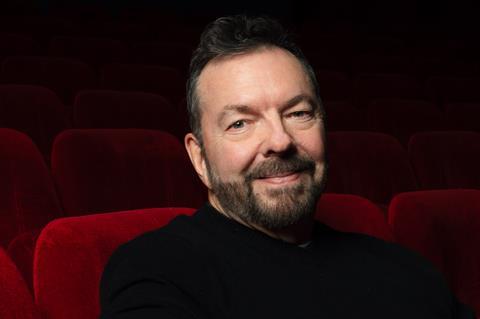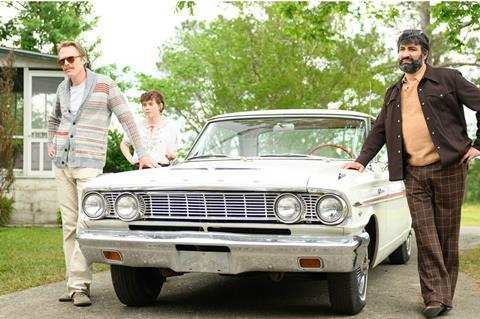
Alan Ball is ready for his comeback.
The US writer-director-producer made his name as the writer of character-driven comedy dramas, winning the Oscar for best original screenplay for writing American Beauty in 2000. He went on to create, write and direct Six Feet Under and True Blood for HBO, ushering in a golden era of prestige television.
He most recently directed the film Uncle Frank, starring Paul Bettany, for Amazon Studios in 2020.
Ball is attending this month’s Geneva International Film Festival for an in-conversation event as the festival hosts gala screenings of his work including American Beauty and Uncle Frank.
He talks to Screen about adapting his career to the streaming era, what makes him able to write female-led drama with conviction, and why he doesn’t believe he could write and sell the screenplay for American Beauty now.
It has been a while since we had an Alan Ball-created film or TV series. Do you have a hankering to make more of either?
I do. I’ve spent the last five years trying to get series off the ground, and for one reason or another, neither of the ones that I was working on ended up going anywhere. I feel I’m probably too old to run a TV series anymore, just because it’s such a grind. It is such hard work, and you have to focus so much of your daily life on it. A movie seems much more doable.
Right now I’m writing a novel based on one of the television series that I developed and a character I love, hoping one of the streamers would buy it, but they didn’t.
It’s a contemporary set novel about a woman who is suppressed by the society she lives in, by her upbringing, her conditioning, and her reaching a breaking point.
How is the market looking for you if you wanted to make a feature film?
I wrote American Beauty on spec because my agent told me I needed a writing sample. The days of writing something on spec and selling it would be much more difficult now.
In the American entertainment industry, at least, everybody wants something recognisable in some way, either a reboot or a spin-off or a prequel or a sequel or a reimagining of something that has already been successful.
I’m not sure any of the people who are greenlighting projects, film or TV, are willing to stick their neck out on something brand new because it’s so expensive to make stuff.
What do you make of the pace of change in the industry now?
The industry is consolidating with each other and the media companies. All they care about is profits and shareholders. I get it, it’s a capitalist society, but at the same time, it’s frustrating trying to be a storyteller in that environment.

What impact has the arrival of the streaming platforms had on how you work?
It’s great there seems to be so much room for people to tell stories. It’s impacted me in that it’s much harder to cut through the clutter. When I wrote Six Feet Under, there weren’t really that many other shows on the air in terms of premium cable. The show was able to seem fresher and newer than perhaps a show I might try to do today.
Nowadays, there’s so much you have to break through if you want a TV show to succeed. That’s part of why the streamers passed on everything I offered. Although I did write bearing in mind that something big should happen quickly.
Why do you write so frequently about complex, interesting women?
Possibly being gay might have something to do with it. I didn’t grow up viewing women as things to be conquests or prizes or objectifying them. I had a sister who was eight years older than me, and I was very, very close with her. Perhaps that rubbed off on me, seeing the world through a woman’s eyes. [She died in a car accident when Ball was 13.]
What is the biggest difference for you between writing and directing for film and TV?
The scope of storytelling. I think of a film as a short story and a series as a novel. You have more time and more space to explore different aspects of characters with a series.
I directed TV before I directed for the big screen. In a lot of ways Six Feet Under was film school for me, because I didn’t go to film school. The first movie I did was Towelhead, a low-budget independent movie, but we still had five weeks to shoot it. With film you have more flexibility in terms of making sure you get exactly the right take and taking more time.
























No comments yet